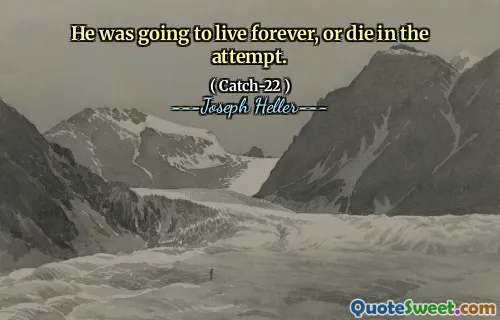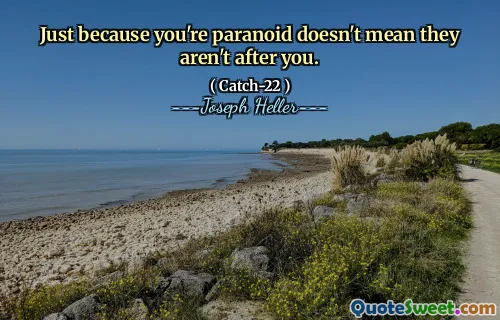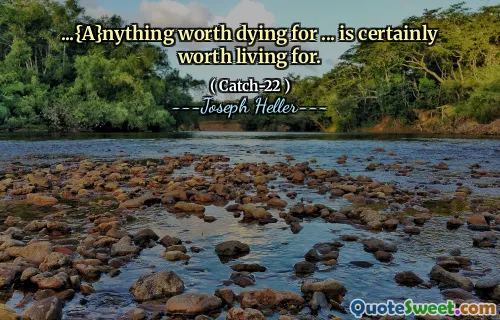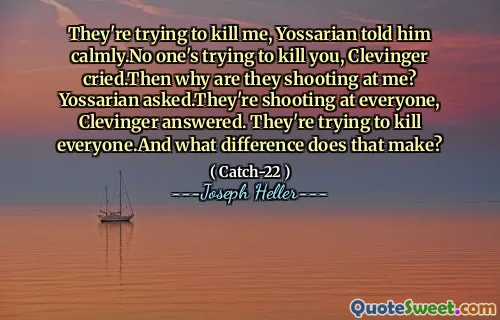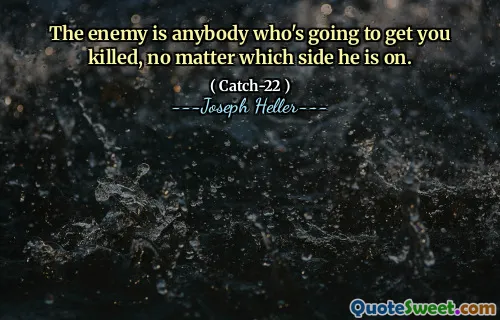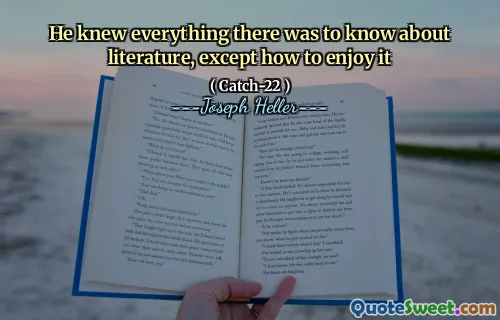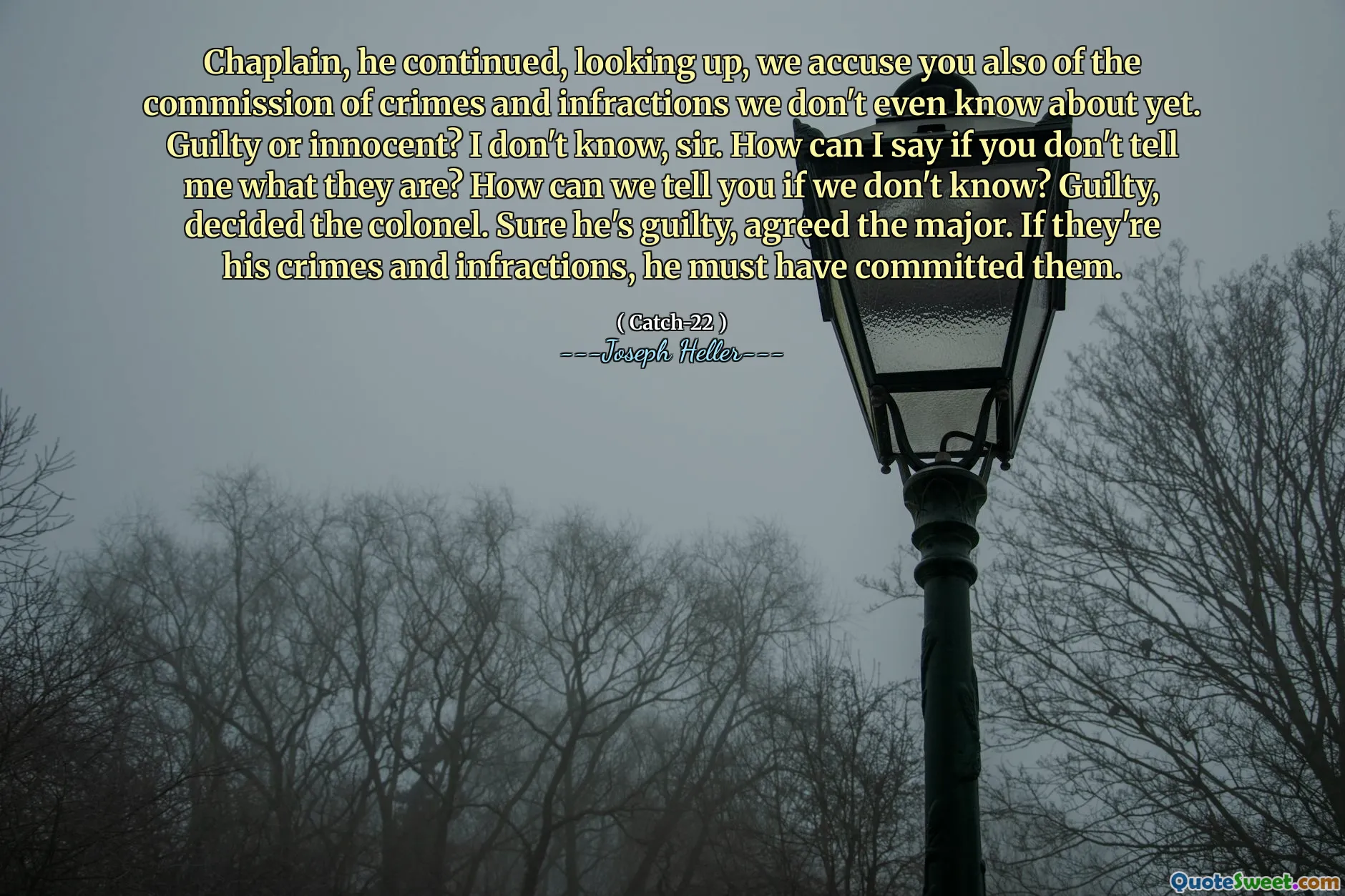
Chaplain, he continued, looking up, we accuse you also of the commission of crimes and infractions we don't even know about yet. Guilty or innocent? I don't know, sir. How can I say if you don't tell me what they are? How can we tell you if we don't know? Guilty, decided the colonel. Sure he's guilty, agreed the major. If they're his crimes and infractions, he must have committed them.
In this passage from "Catch-22" by Joseph Heller, a chaplain is confronted by military officials who accuse him of various unspecified crimes. The chaplain expresses his confusion, stating that he cannot determine his guilt without knowing the charges against him. This highlights the absurdity of the situation, as the officials seem to operate under a presumption of guilt rather than the principle of innocence until proven guilty.
The colonel and major quickly conclude that the chaplain must be guilty simply because the accusations are linked to him, demonstrating a flawed and chaotic military justice system. Their reasoning reflects the overarching themes of the book, showcasing how authority figures often abandon logic and fairness in favor of arbitrary judgments. This scenario illustrates the satire of bureaucracy and the absurdities of war, which are central to Heller's narrative.
